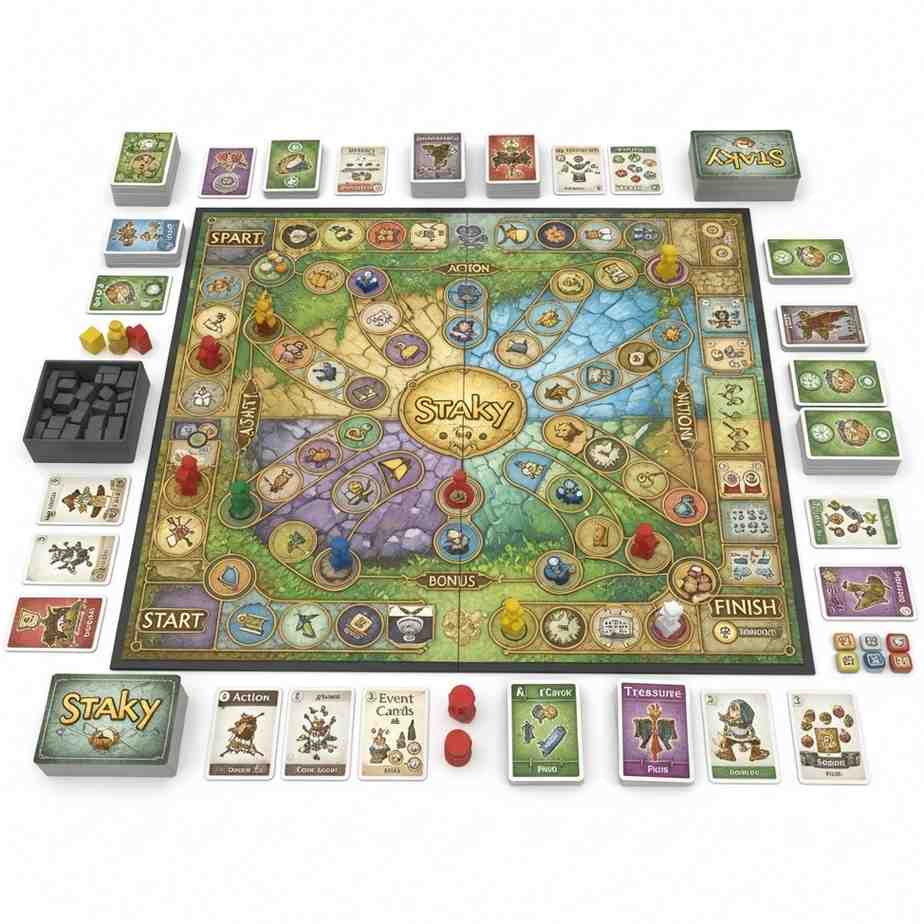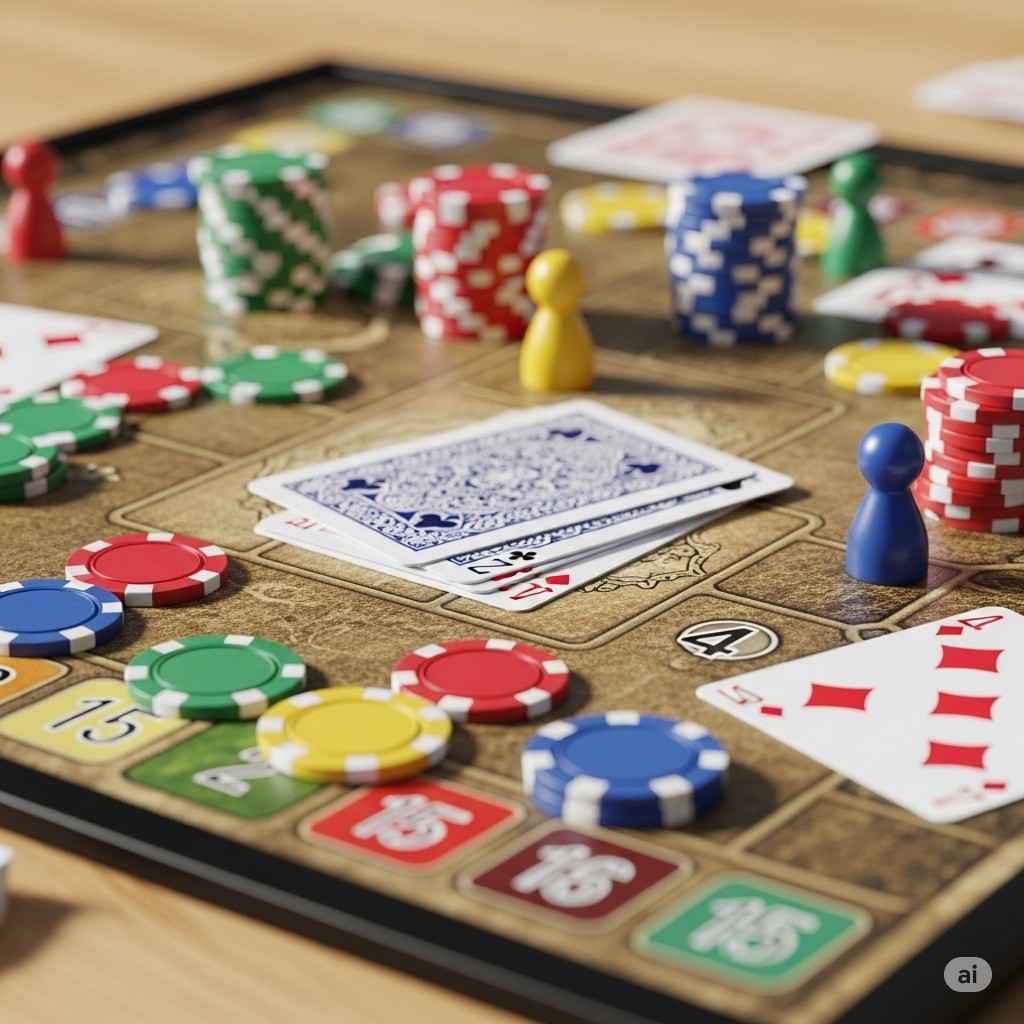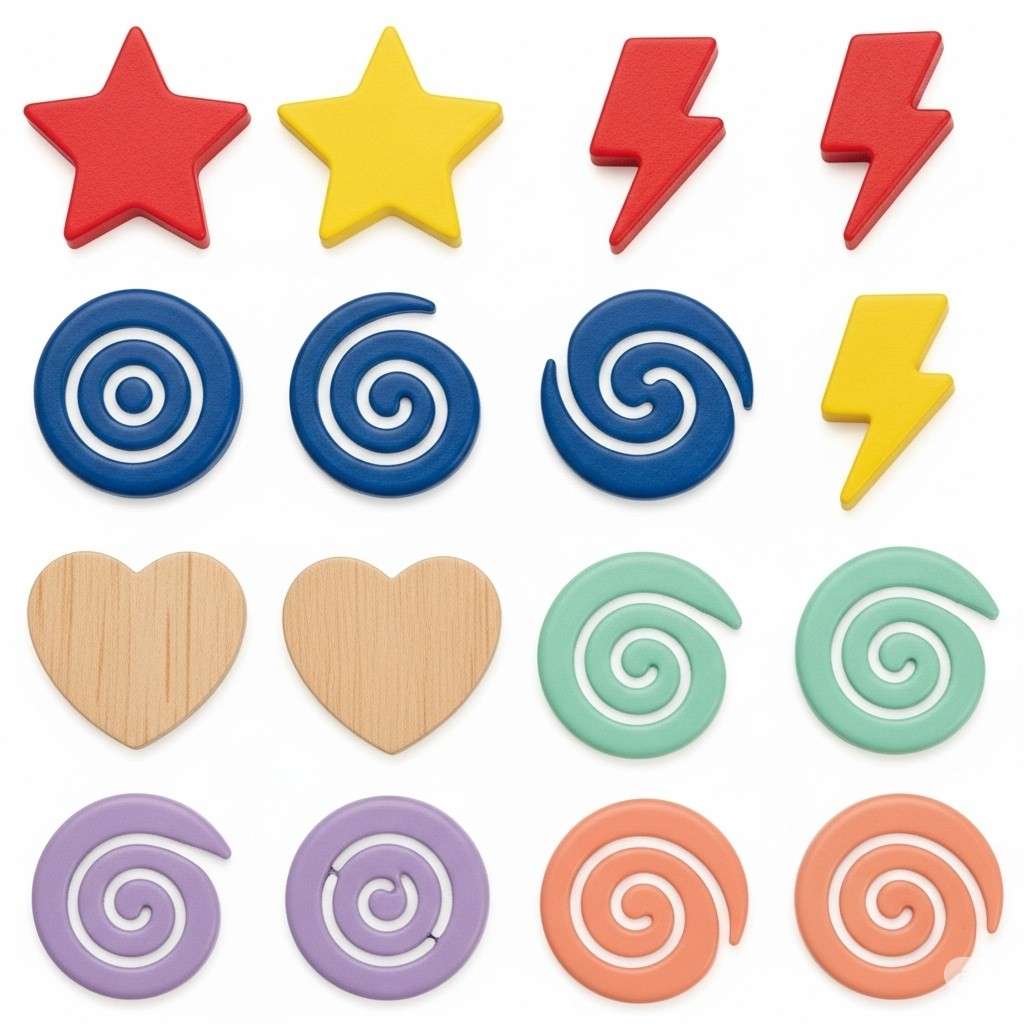How to Play Staky Game
Staky Game is a strategic board game that combines the excitement of empire-building with the thrill of outsmarting opponents. Designed for 2-6 players, it’s perfect for family gatherings, friendly competitions, or casual game nights across India. The objective is to accumulate the most points by acquiring properties, completing sets, and strategically using action cards. Unlike games that rely on luck, Staky Game emphasizes skill, making every decision critical. A typical game lasts 60-90 minutes, offering a perfect balance of engagement and fun. The vibrant board, inspired by India’s cultural diversity, features properties named after iconic cities and landmarks, adding a local flavor to the experience. Below, you’ll find a comprehensive guide to the rules, step-by-step instructions, component details, winning strategies, and answers to common questions to help you become a Staky Game master.
The game begins with players choosing their tokens, each reflecting India’s rich heritage—think tokens shaped like a rickshaw, lotus, or peacock. The board is divided into property spaces, action spaces, and special zones that add depth to gameplay. Players roll dice to move, but the outcome of each turn depends on their choices—whether to buy, trade, or hold off. The 100+ cards include property cards for building sets and action cards for strategic twists like stealing properties or blocking opponents. The rulebook is clear and concise, ensuring players of all ages can dive in quickly. Staky Game’s design encourages critical thinking, negotiation, and planning, making it a wholesome, skill-based activity for Indian households.

Game Components
Staky Game’s components are crafted to enhance the strategic experience. The game includes:
- Game Board: A vibrant, circular board featuring 40 spaces, including properties inspired by Indian cities like Mumbai, Delhi, and Jaipur, plus action and special zones.
- Property Cards: 28 cards representing properties, grouped into 8 color-coded sets. Each card details point values and rent costs.
- Action Cards: 50 cards offering strategic moves, such as “Steal a Property,” “Block a Trade,” or “Gain Bonus Points.”
- Player Tokens: 6 unique tokens, each reflecting Indian culture (e.g., elephant, lotus, rickshaw).
- Dice: Two six-sided dice for movement, designed with colorful accents.
- Rulebook: A detailed guide with setup instructions, rules, and tips for beginners.
Every component is designed for durability and aesthetic appeal, ensuring an immersive experience. The board’s artwork celebrates India’s diversity, with illustrations of landmarks and cultural motifs, making Staky Game a visual delight.



Game Steps
Follow these steps to play Staky Game and start your journey to strategic mastery:

1. Set Up the Board
Unfold the game board and place it centrally. Each player selects a token and places it on the “Go” square. Shuffle the property and action card decks and place them in their designated spots. Distribute starting points (in-game currency) as per the rulebook.

2. Roll to Move
Players take turns rolling two dice to move their token around the board’s circular path, landing on properties, action spaces, or special zones that trigger unique events.

3. Acquire Properties
Land on an unowned property to purchase it with points. If owned, negotiate trades or pay rent. Properties form color-coded sets, increasing in value when completed.

4. Build Your Empire
Complete a set to build structures, earning bonus points. Structures range from small assets to grand developments, each adding strategic depth.

5. Use Action Cards
Draw action cards from action spaces to gain advantages, such as stealing properties or blocking opponents. Timing these cards is key to victory.

6. Win the Game
The game ends when all properties are owned or after a set number of rounds. Points are tallied from properties, structures, and bonuses. The highest score wins!
Winning Strategies
To excel at Staky Game, blend foresight, negotiation, and tactical timing. Early on, target high-value properties in high-traffic areas, like those near special zones, as they yield higher rent and points. Be strategic with trades—only part with properties if the deal significantly boosts your position. Hold action cards for critical moments, like using a “Block” card to stop an opponent’s set completion. Monitor opponents’ resources to counter their moves effectively. For example, if a player is close to completing a set, deploy a “Steal” card to disrupt them. Balance spending—overspending early can weaken your late-game position. The board’s economy rewards players who control key areas, so prioritize properties near high-traffic zones. Practice these tactics to dominate game nights in Mumbai, Chennai, or beyond.
Advanced players can adopt aggressive strategies, like monopolizing a color set early, or defensive ones, like hoarding action cards to counter opponents. Negotiation is crucial—engage in smart trades to secure favorable deals. Staky Game’s depth ensures no two games are identical, offering endless opportunities to refine your skills. Whether you’re a beginner in Bangalore or a seasoned player in Delhi, these strategies will elevate your game. Experiment with different approaches, and soon you’ll be outsmarting opponents with ease.

Frequently Asked Questions
Is Staky Game luck-based?
No, Staky Game is skill-based, with strategic decisions driving success. Dice determine movement, but choices shape the outcome, ensuring fairness.
How many players can play?
Staky Game supports 2-6 players, ideal for small or large gatherings in Indian households.
How long does a game take?
A typical game lasts 60-90 minutes, adjustable with custom rules for shorter or longer play.
Is it suitable for kids?
Yes, Staky Game is family-friendly, designed for players aged 8+ with accessible yet deep gameplay.
Can I play solo?
While designed for multiple players, a digital version with AI opponents is in development for solo play.